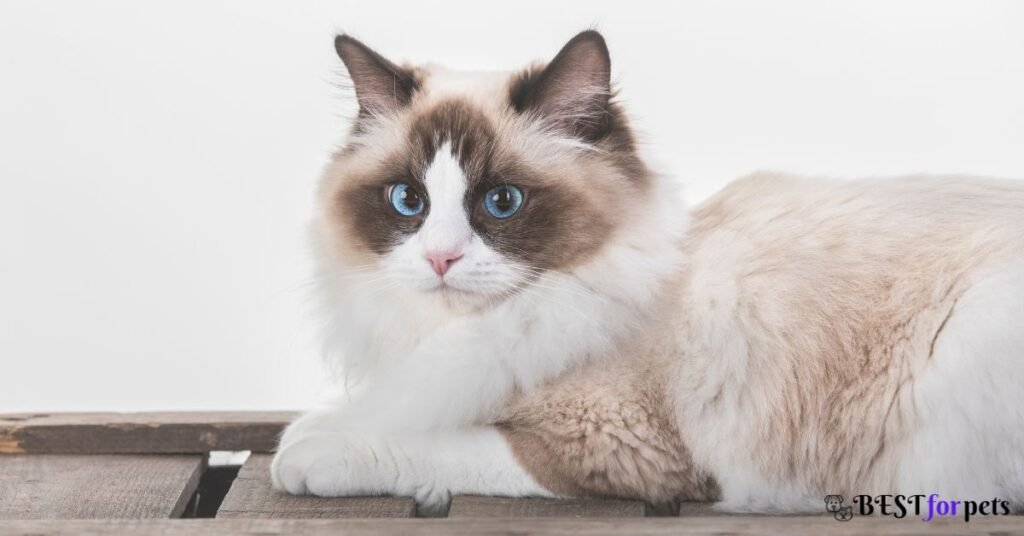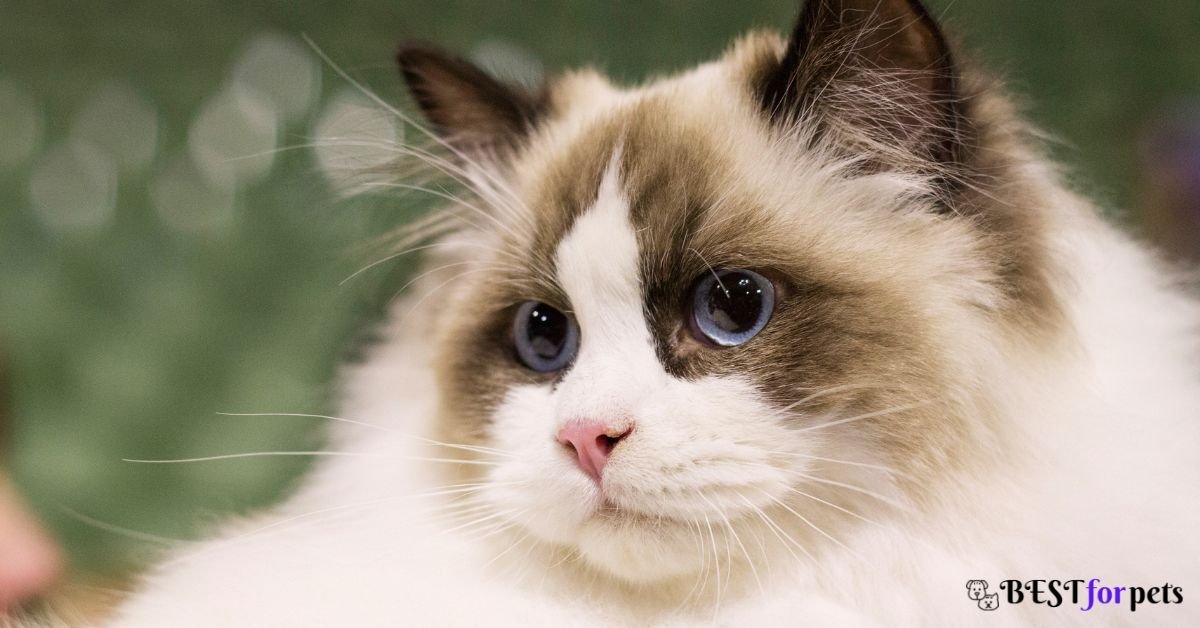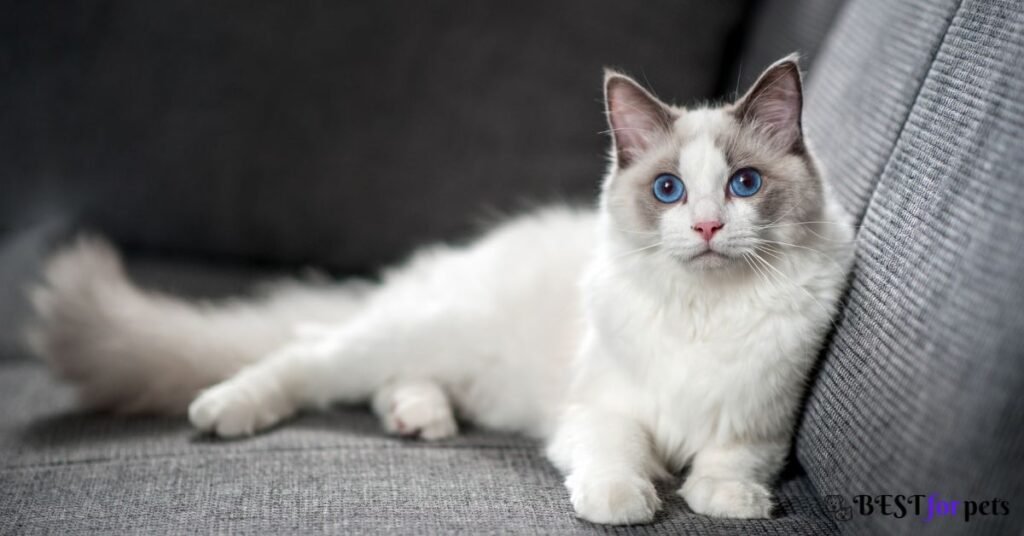//Prices//
Ragdoll Cat Price In India
The price of a Ragdoll cat in India can vary depending on several factors such as the location, the breeder, the cat’s age, and the cat’s quality. On average, the Ragdoll Cat Price in India can range from INR 20,000 to INR 40,000

Various Factors That Affects The Price Of Ragdoll Cat
The price of a Ragdoll cat can vary based on several factors, including:
Breeder Reputation:
Reputable breeders who invest in health screenings and breeding programs for their cats typically charge more for their kittens.
Location:
The cost of living in a certain area can affect the price of a Ragdoll kitten. Kittens in cities with a high cost of living, such as New York or Los Angeles, may cost more than kittens in more rural areas.
Coat Color and Pattern:
Some coat colors and patterns, such as the seal bicolor or mitted, are more sought after and therefore more expensive.
Show Quality:
Show-quality Ragdoll kittens, or those with the physical attributes and characteristics desired by breeders, may be more expensive than pet-quality kittens.
Pedigree:
Kittens with a strong pedigree, or those that come from a long line of champions, may also be more expensive.
Age:
Younger kittens tend to be more expensive than older ones, as they are in higher demand.
Supply and Demand:
The availability of Ragdoll kittens in a certain area can also affect their price. In areas where demand is high and supply is limited, the price may be higher.
An Introduction To Ragdoll Cat
History of Ragdoll Cats-
The Ragdoll breed originated in the United States in the 1960s, when a breeder named Ann Baker combined several different breeds to create a new breed of cat. The breed was named “Ragdoll” because of their tendency to go limp when picked up, much like a ragdoll.
Over time, the breed has become one of the most popular cat breeds in the world and is now recognized by several cat breed registries.
Personality Traits of Ragdoll Cats –
Ragdoll cats are known for their affectionate and relaxed personalities, making them a popular choice for families and individuals looking for a loving and easy-going companion. They are generally gentle, friendly, and good-natured, and they enjoy being close to their owners.
They are also known for their laid-back attitude, and they tend to be very docile and relaxed, even when being held or cuddled.

Physical Characteristics of Ragdoll Cats –
Ragdoll cats are known for their distinctive appearance, which includes a long, fluffy coat and a big, muscular body. They have a beautiful, soft, blue-eyed look and are available in a variety of colors, including blue, seal, lilac, and chocolate. Their coat is silky and requires regular grooming to keep it looking its best.
Ragdoll cats are also known for their large size and are considered one of the largest domestic cat breeds. They can weigh anywhere from 10 to 20 pounds, and their long legs and large frame give them a regal, elegant appearance.
Health Concerns of Ragdoll Cats
Like all cat breeds, Ragdolls are prone to certain health issues. Some of the most common health concerns include:
Bladder Stones:
Ragdolls are prone to developing bladder stones, which can cause urinary tract infections and other health problems. Regular veterinary check-ups can help prevent and detect this issue.
Heart Disease:
Some Ragdolls may be prone to heart disease, particularly hypertrophic cardiomyopathy, which is a condition that causes the heart muscle to thicken. Regular veterinary check-ups can help detect this condition early and ensure that your cat receives proper treatment.
Obesity:
Ragdolls are prone to obesity due to their large size and laid-back personalities. Regular exercise and a healthy diet can help prevent this issue.
Care tips for Ragdoll Cat
Ragdoll cats are a popular breed known for their affectionate personalities and beautiful appearance. To keep your Ragdoll happy and healthy, it’s important to provide proper care. Here are some tips for caring for your Ragdoll cat:
Nutrition:
Feed your Ragdoll a balanced diet that includes high-quality cat food and plenty of fresh water. Wet food can help keep your cat hydrated, while dry food can help keep its teeth clean.
Grooming:
Ragdolls have long, silky coats that require regular grooming to prevent mats and tangles. Brush your cat at least once a week, and be sure to trim any knots or tangles as soon as they form.
Exercise:
Ragdolls are known for their laid-back personalities, but they still need exercise to maintain their health and weight. Provide your cat with plenty of toys and encourage them to play.

Regular Vet Visits:
Regular veterinary check-ups are important for maintaining your Ragdoll’s health. Be sure to keep up with your cat’s vaccinations, and schedule regular check-ups for routine exams and screenings.
Mental Stimulation:
Ragdolls are intelligent cats that need mental stimulation to keep them happy and entertained. Provide your cat with plenty of toys and interactive play opportunities, and consider teaching them tricks or playing games with them.
Socialization:
Ragdolls are affectionate cats that enjoy being close to their owners. Encourage socialization by spending time with your cat every day, and consider adopting another cat or getting a cat-friendly dog to keep your Ragdoll company.
Litter Box Maintenance:
Keep your Ragdoll litter box clean and fresh to prevent any health or behavioral issues. Scoop the litter box daily and change the litter weekly.
Ragdoll Cat Lifespan
The lifespan of a Ragdoll cat can vary, but on average they can live to be 12 to 15 years old. With proper care and regular veterinary check-ups, some Ragdolls have been known to live even longer.
Fun facts about Ragdoll Cat
Ragdoll cats are a unique and fascinating breed, known for their affectionate personalities and beautiful appearance. Here are some fun facts about Ragdoll cats:
1. Ragdolls are known for their relaxed and laid-back personalities. They are often referred to as “puppy cats” because of their tendency to go limp when picked up, just like a ragdoll toy.
2. Ragdolls are one of the largest domestic cat breeds, with males often weighing between 15 to 20 pounds and females weighing between 10 to 15 pounds.
3. Ragdolls have bright blue eyes that are large and round, giving them a striking appearance.
4. Ragdolls are known for their silky coats, which come in several colors and patterns, including seal, blue, chocolate, and lilac, as well as bicolor, mitted, and point patterns.
5. Ragdolls are social cats that love to be close to their owners and other pets. They are known for their affectionate personalities and are often described as “dog-like” in their behavior.
6. Ragdolls are slow to mature, taking anywhere from 3 to 4 years to fully develop their personalities and characteristics.
7. Ragdolls are not known for being strong climbers or jumpers, making them a good choice for families with young children or senior citizens.
8. Ragdolls are a relatively new breed, first developed in the 1960s in California by breeder Ann Baker.
Frequently Asked Questions
Are Ragdoll cats good with children?
Yes, Ragdoll cats are generally good with children. They are known for their affectionate personalities and love to be close to their owners. However, as with all cats, it’s important to supervise young children when they are playing with your Ragdoll.
Do Ragdoll cats need a lot of grooming?
Yes, Ragdoll cats have long, silky coats that require regular grooming to prevent mats and tangles. It’s important to brush your Ragdoll at least once a week, and trim any knots or tangles as soon as they form.
Are Ragdoll cats good with other pets?
Yes, Ragdoll cats are generally good with other pets. They are social cats that enjoy being close to their owners and other pets and are known for their relaxed and laid-back personalities.
What is the difference between a mitted Ragdoll and a bicolor Ragdoll?
A mitted Ragdoll has white fur on their feet and legs, as well as a white bib on their chest. A bicolor Ragdoll has white fur on their chest, legs, and face, with the remaining four being a different color.
Do Ragdoll cats shed a lot?
Yes, Ragdoll cats do shed a moderate amount of fur. However, their long silky coats help to trap any loose fur, making it easier to groom and keep your home clean.
How much exercise does a Ragdoll cat need?
Ragdoll cats do not require a lot of exercises, but they do enjoy playing with toys and receiving affection from their owners. It’s important to provide your Ragdoll with plenty of opportunities for play and interaction to keep them mentally and physically stimulated.

